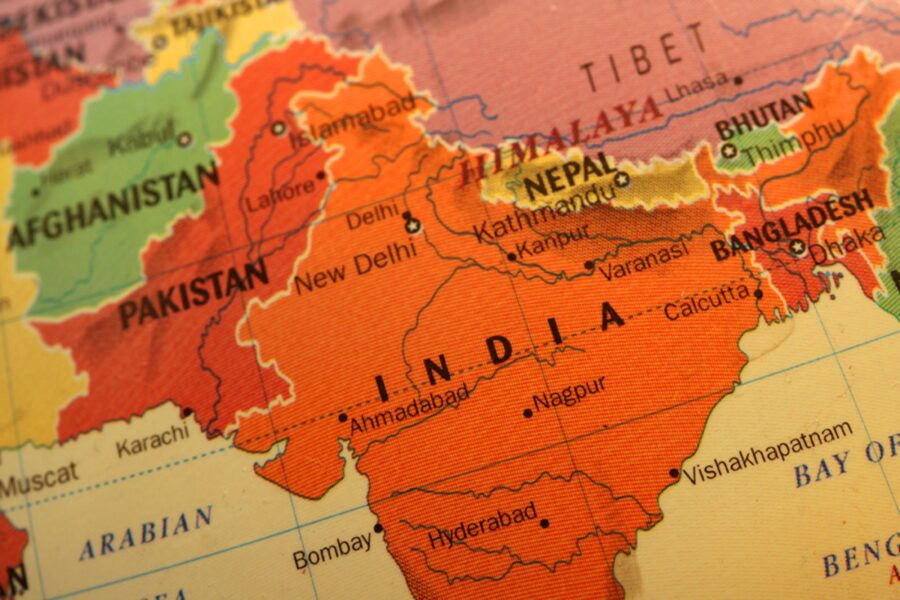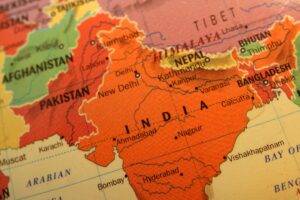Increased Gambling Taxes Hit India

After more than a year of debate and disagreement, the 28 per cent gambling tax came into effect in
India on October 1. The tax, which targets bets made via online gaming, casinos, and horseracing, was
first proposed in May of 2022 and went through a litany of scrutiny before being officially implemented
earlier this month.
Officials cite concerns over addiction and financial losses as the main drivers for this tax, while game
companies lament the rising costs they say they’ll have to pass on to online gamblers through increased
fees.
Historically, online gambling laws have been lax in India, with no federal regulations prohibiting online betting, although a few states have enacted legislature explicitly outlawing virtual gaming.
India’s Gambling Laws
Gambling remains a state subject in the country, with 3 out of India’s 28 states allowing land-based casinos—though others are considering it. Gamblers flock to these establishments based in Goa, Daman, and Sikkim. Unsurprisingly, officials from Goa were some of the most vocal opponents of the recent tax.
While Goan representatives agreed to levy the 28 per cent tax on gross gaming revenue—the difference between how much money players wager and the amount they win—they opposed a uniform tax on full face value for online gaming.
The fear for states that rely on gambling revenue is that this new tax will have a negative effect on a burgeoning industry. Officials believe the tax will decrease new investor interest and discourage gamers from visiting land-based casinos.
The popularity of Online Gaming in India
As a country, India loves to gamble. Historically, card games have been a popular choice, but online gaming has become increasingly popular since the advent of the internet—especially smartphones. Rummy, poker, and fantasy sports are some of the most played games online. It also helps that there are no federal laws directly addressing the legality of online gambling.
That means gamers can easily place bets on online casino sites that operate outside of India’s borders. These offshore establishments have remained successful despite being banned in some states, such as Telangana and Karnataka.
Statistics show that before this tax, the gaming sector was on a steady rise toward success. From 2017 to 2022, the industry grew from $369 million in earnings to a whopping $2.2 billion. Pre-tax projections show that this growth will continue and reach $2.8 billion by 2025.
The pandemic served as an especially favourable boost for online gaming companies when in-person operations shut down. Online services grew while people were stuck at home and looking for something to do.
It also helps that familiar faces have endorsed these services. Cricket players and Bollywood stars alike have served as the face of some iGaming brands. With revered athletes and thespians acting as brand ambassadors, online gambling sites have grown in popularity. Top football teams even sport logos from betting sites on their jerseys.
Gambling, both in the virtual world and in person, has clearly proved a popular pastime for Indians, which is perhaps why this 28 per cent tax comes at the time it does.
Why Tax Online Gaming and Casinos
In addition to concerns surrounding the addictive nature of gambling and a desire to curb losses among players, India’s central government says increased taxes will offer a clearer taxation framework.
The aim here is to clear muddy waters and bring complex gambling sectors into the government’s GST fold. Streamlining tax collections is also of particular interest in implementing this new law.
New Taxes Effect on the Industry
India’s new gambling tax, effective October 1, has already begun to affect the industry and players. Layoffs at tech companies that run online gambling services are either inevitable or have already started.
With less funding to launch operations, start-up entrepreneurs will have an increasingly difficult time breaking into the space. These businesses that rely on cash flow to bring games to the people will see severe restrictions on the amount of money they can access.
That means less investment in research, innovation, and expansion of the virtual gaming sector. It’s also undeniable that gamers will have to pay more to play.
While casinos may fare better due to their longer-established nature, it will still be tough on the industry as a whole. Only time will tell if online gambling can thrive as it once did in the country.
Conclusion
While horse racing, sports betting, online gaming, and land-based casinos remain widely available despite being highly regulated in other countries such as Canada and the United States, India may not ever enjoy a similar level of gambling access. The recent tax certainly doesn’t seem promising for the industry. A bevvy of diverse online gaming selections may remain only accessible to players outside the subcontinent, but only time will tell. In the meantime, stay tuned to your guide to casino sites and news coming out of Indian gambling start-ups, casinos, and racetracks to see how this tax affects the pastime for players, investors, and establishment owners alike.










